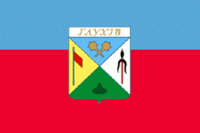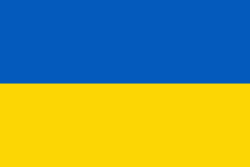Hlukhiv
 |
 |
It is known for being a capital of the Cossack Hetmanate after deposition of Ivan Mazepa in 1708–1764. The former Soviet Chervone-Pustohorod air base is located near Hlukhiv.
First noticed by chroniclers as a Severian town in 1152. Sometime in 1247 Hlukhiv became the seat of a branch of the princely house of Chernigov following the Mongol invasion of Rus. Between 1320 and 1503 it was part of the Grand Duchy of Lithuania before being conquered by the Grand Duchy of Moscow. In 1618 it became part of the Polish–Lithuanian Commonwealth (in the Czernihów Voivodeship of the Crown of Poland) and was granted Magdeburg Rights in 1644 by Władysław IV Vasa. In 1648–1764 it was part of the Cossack Hetmanate within the Nizhyn Regiment (province).
In 1654 the Cossack Hetmanate came under military protectorate of the Tsardom of Muscovy in accordance with the Treaty of Pereyaslav and in 1664, during the siege of Hlukhiv, the Russo-Cossack garrison of the town successfully defended against a superiour Polish army which suffered great losses during the following retreat. According to the Truce of Andrusovo along with the rest Left-bank Ukraine it was ceded to the Tsardom of Muscovy in 1667.
In 1708 after realizing that Ivan Mazepa sided with Carl XII, Peter the Great order to destroy Baturyn and transfer capital to Hlukhiv. Here in November 1708 was elected a new Hetman of Zaporizhian Host Ivan Skoropadsky, while the Metropolitan of Kyiv, Halych and all Little Russia Ioasaf was forced to proclaim anathema onto Mazepa in the St. Trinity Cathedral (destroyed in 1962). Hlukhiv served as the capital of the Cossack Hetmanate in 1708-64 and until 1773 the administrative center of the Little Russia Governorate. Under the last hetmans of Ukraine, the town was remodeled in the Baroque style. Subsequently, it declined in consequence of frequent fires, so that very few of its architectural gems survived.
Since the first school of singing in the Russian Empire was established there in 1738, the town has a rich musical heritage. Composers Dmytro Bortniansky and Maksym Berezovsky, whose statues grace the Bortniansky Square of Hlukhiv, are believed to have studied there.
In 1874 in a college was established in Hlukhiv (today Hlukhiv National Pedagogical University of Oleksandr Dovzhenko). In 1879, the Tereshchenko brothers, who were Russian millionaires of Ukrainian descent, established a free hospital of St. Euphrosyne and supported it financially. In 1899 on the funds of Tereshchenko family in Hlukhiv was established another college (today Agrarian college of the Sumy Agrarian University).
In 1918 the city became part of Ukraine, however already in January 1918 it was occupied by the Soviet troops for several months. The Soviet regime returned again to the city a year later in 1919.
During World War II, Hlukhiv was occupied by the German Army from 9 September 1941 to 30 August 1943.
In 1994 in the city was established the State Historical and Cultural Heritage Park.
Map - Hlukhiv
Map
Country - Ukraine
 |
 |
| Flag of Ukraine | |
During the Middle Ages, Ukraine was the site of early Slavic expansion and the area later became a key centre of East Slavic culture under the state of Kievan Rus', which emerged in the 9th century. The state eventually disintegrated into rival regional powers and was ultimately destroyed by the Mongol invasions of the 13th century. The area was then contested, divided, and ruled by a variety of external powers for the next 600 years, including the Polish–Lithuanian Commonwealth, the Austrian Empire, the Ottoman Empire, and the Tsardom of Russia. The Cossack Hetmanate emerged in central Ukraine in the 17th century, but was partitioned between Russia and Poland, and ultimately absorbed by the Russian Empire. Ukrainian nationalism developed, and following the Russian Revolution in 1917, the short-lived Ukrainian People's Republic was formed. The Bolsheviks consolidated control over much of the former empire and established the Ukrainian Soviet Socialist Republic, which became a constituent republic of the Soviet Union when it was formed in 1922. In the early 1930s, millions of Ukrainians died in the Holodomor, a man-made famine. During World War II, Ukraine was devastated by the German occupation.
Currency / Language
| ISO | Currency | Symbol | Significant figures |
|---|---|---|---|
| UAH | Ukrainian hryvnia | â‚´ | 2 |
| ISO | Language |
|---|---|
| HU | Hungarian language |
| PL | Polish language |
| RU | Russian language |
| UK | Ukrainian language |















